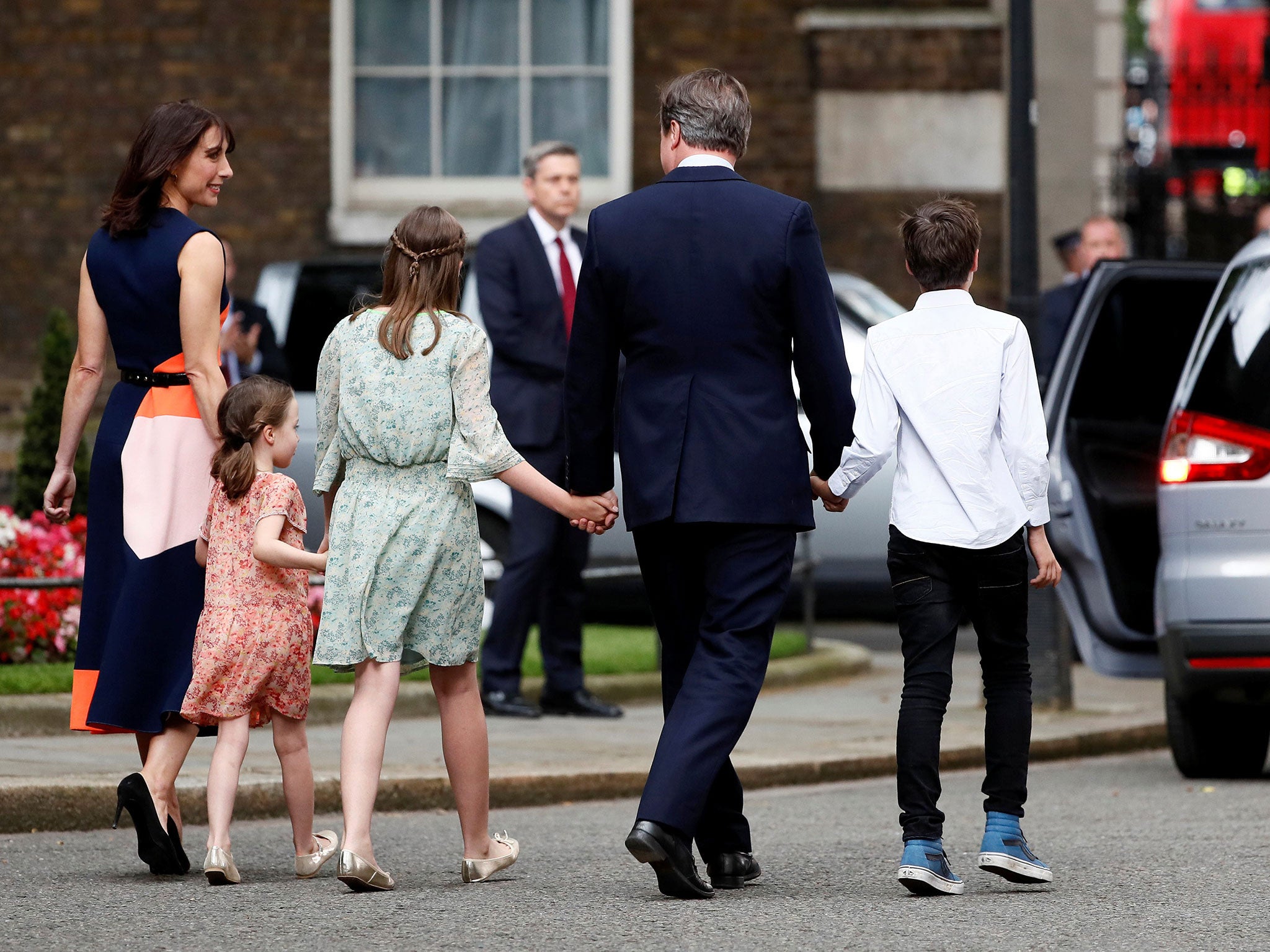David Cameron promised the greenest government ever – and failed. Now Theresa May is following his lead
Time is running out to avert catastrophic climate change and to halt the decline of nature, but the new Prime Minister has already closed the department dedicated to the issue


Your support helps us to tell the story
From reproductive rights to climate change to Big Tech, The Independent is on the ground when the story is developing. Whether it's investigating the financials of Elon Musk's pro-Trump PAC or producing our latest documentary, 'The A Word', which shines a light on the American women fighting for reproductive rights, we know how important it is to parse out the facts from the messaging.
At such a critical moment in US history, we need reporters on the ground. Your donation allows us to keep sending journalists to speak to both sides of the story.
The Independent is trusted by Americans across the entire political spectrum. And unlike many other quality news outlets, we choose not to lock Americans out of our reporting and analysis with paywalls. We believe quality journalism should be available to everyone, paid for by those who can afford it.
Your support makes all the difference.David Cameron promised his would be the “greenest government ever”, but ultimately he prioritised fossil fuel and agri-business interests. I hope that Theresa May’s new government will get the UK back on track; whatever happens with the EU negotiations, our existing environment protections must be defended and extended. But the signs are not good. Just hours into her new job, the Prime Minister has downgraded the government’s focus on climate change by announcing that the Department for Energy and Climate Change (DECC) is to fold.
Cameron, for his part, started well when he took over as leader of the Opposition in 2005. He identified climate change as a core issue, using it to detoxify the Tory brand from being (in Theresa May’s words) the “nasty party”. He responded to genuine public and business pressure for action to cut emissions and to build a new green economy.
For a while, Cameron shifted the politics of climate change. In 2008 the Bill was passed the Climate Change Bill near-unanimously, with MPs on the Conservative benches filing through the division lobby in a moment of political consensus across the House.
And Cameron made a bold start as a new Prime Minister in 2010, declaring himself the “fourth climate change minister”. But his record in his first term of office was mixed and showed that solving environmental problems would come second to economic and political vested interests.
Appointing Liberal Democrat Chris Huhne to head up DECC was interpreted as a clever means of accelerating climate action whilst ducking the flak coming from Cameron’s right flank. The department oversaw a steep increase in renewable energy deployment, boosted by the implementation of the previous government’s feed in tariff policy to encourage green energy.
But getting to grips with climate change is just not compatible with boosting fossil fuels; it’s a choice between two. It became clear to me that David Cameron was not prepared to stand up to fossil fuel – or to his own backbenchers.
By September 2012, the Conservative mood on the environment had shifted. The environment no longer seemed part of Cameron’s strategy to win over the nation.
He appointed Owen Paterson, who made climate sceptic comments and went unchecked when he did so. It was a significant capitulation from Cameron to the right of his party, and one that he didn’t have to make. Budget after Budget announced more tax breaks for fossil fuel exploration. DECC pursued a ‘gas first’ strategy, describing it as a “bridge” fuel towards decarbonisation. In reality, it diverted funding for renewables.
There was a bloody fight over the fourth carbon budget (the limit on emissions between 2023 and 2027), with George Osborne wanting to reject the advice of the Government’s independent climate change advisors. It was ultimately passed, but Cameron allowed his authority on the issue to be weakened.
“We’re going all out for shale” was his statement in 2014, as he announced plans to try to bribe local communities which had become resolute against fracking wherever it was proposed. The “vote blue, go green” vision had been scrapped for good.
Securing a majority government in 2015, Cameron faced a test. The Conservative manifesto made two important commitments that would form part of his green legacy: the phasing out coal in power generation, and the protection of large areas of ocean around UK overseas territories. But the new Government quickly set to work lighting a bonfire under some of the most important climate change policies and nature protections.
The rug was pulled from under the renewables industry: following through on the pledge to virtually ban onshore wind, and slashing the feed in tariff. Overall UK carbon emissions had been falling but, as warned, the growth in renewables deployment stalled, and solar companies employing thousands of people around the country went bust.
The Government scrapped the most important energy efficiency schemes – including schemes to protect the most vulnerable people from cold. And they removed the requirement for new homes to be ‘zero carbon’, consigning another generation to high fuel bills and high carbon footprints.
Fracking was proposed to be allowed in precious wildlife sites in National Parks, through water aquifers and even under people’s houses – but were forced into a partial retreat. All this was in the run up to the global Paris climate negotiations in which the UK was claiming to play a leadership role amongst nations. The UK entered the talks as the only G7 country to be increasing tax breaks for fossil fuels.
It is young people whose lives will be affected most by David Cameron’s legacy and political decisions taken now by the new Prime Minister. Just this week the government’s own advisors warned of ever growing risks to our businesses, homes and food if we don’t do more to cut fossil fuel pollution. Otherwise, we will have “taken back control” only for Britain to again be the “dirty man of Europe”.
Now, with Theresa May in power, we are looking for a clear commitment to policies that will put the country on track to meeting out Climate Change Act goals and to delivering the Paris climate change Agreement to keep global temperature rises to 1.5 degrees. But there is no department directly responsible for this.
Alarmingly, May has also appointed a vocal climate sceptic to the role of Brexit minister. She and David Davis must commit to uphold and strengthen environmental protection, whatever the outcome of negotiations with Europe. She must not concede to the powerful vested interests intent on a race to the bottom on environmental as well as social protections.
Time is running out to avert catastrophic climate change and to halt the decline of nature. This is about protecting people as well as the planet we live on. There is no time to lose for the new prime minister in changing path – and, thanks to David Cameron, so much time has already been lost.
Craig Bennett is chief executive of Friends of the Earth
Join our commenting forum
Join thought-provoking conversations, follow other Independent readers and see their replies
Comments